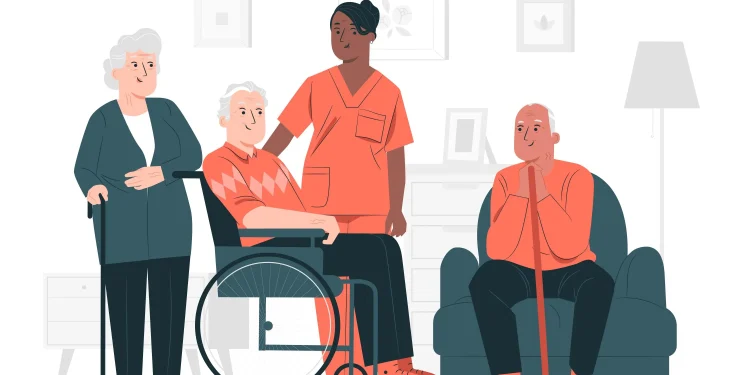Supporting a loved one through a difficult time is one of the most rewarding yet challenging experiences we can face. Whether physical, emotional, or mental health struggles, being there for someone you care about shows love and compassion. However, there are moments when your support may not be enough, and knowing when to seek help is crucial for your loved one’s well-being and your own.
Understanding the Role of a Support System

A support system is a network of people who provide emotional, physical, and psychological help to an individual during tough times. You may feel responsible for offering comfort, guidance, and care as a loved one. It’s important to remember that while you can be there to listen and offer assistance, you are not a substitute for professional care and overcoming grief. Recognizing the limits of what you can provide helps you avoid burnout and ensures that the person you support gets the appropriate help when necessary.
Signs That Professional Help is Needed

Several signs may indicate it’s time to seek professional help to reclaim the peaceful time in life. These signs can manifest in different ways, depending on the situation, but the following are common indicators:
1. Emotional and Behavioral Changes
If you notice significant changes in your loved one’s behavior or mood, it may be time to seek help. This could include extreme mood swings, withdrawal from social interactions, or behaviors that are out of character. These changes may suggest underlying mental health issues, such as depression or anxiety, which often require professional intervention. In some cases, a private carer may be able to provide the necessary emotional and physical support to help manage these changes.
2. Physical Health Decline
Sometimes, challenges can lead to physical symptoms for your loved one. If they neglect their personal care, lose weight rapidly, or display signs of fatigue or illness, it’s important to consider seeking help from a medical professional. A healthcare provider can assess whether there is an underlying condition or if specialized care is needed.
3. Inability to Cope with Daily Tasks
When a loved one struggles to manage daily activities—such as getting out of bed, eating, or going to work—it’s a clear sign that the situation has become overwhelming. Professional support, such as counseling or therapy, can help them develop coping strategies and regain control over their life.
4. Danger to Themselves or Others
If your loved one expresses thoughts of self-harm, suicide, or harm toward others, immediate intervention is essential. In such situations, seeking help through a crisis hotline or emergency services is best. Safety should always be the priority.
How to Approach the Conversation About Seeking Help?
Approaching a loved one about seeking professional help can be sensitive. They may feel embarrassed, resistant, or afraid to seek support. It’s important to create a safe, non-judgmental space for this conversation. Here are some tips to help navigate the discussion:
- Be empathetic: Understand that your loved one may feel vulnerable or overwhelmed. Show compassion, and let them know that you are there for them.
- Offer reassurance: Reassure them that seeking help is a sign of strength, not weakness. Emphasize that professional support can make a big difference in their recovery.
- Provide options: Help them explore the options available for support, whether therapy, medical care, or a support group. Offer to assist with finding resources or making appointments.
The Importance of Self-Care

While being there for a loved one is important, taking care of yourself is just as crucial. Offering support can be emotionally and physically draining. Be sure to seek support when needed, and make time for activities that help you recharge. It’s essential to maintain your own well-being so you can continue to be a source of support for your loved one.
Conclusion
In supporting a loved one through tough times, balancing being there for them and recognizing when professional help is needed is vital. Observing significant changes in their behavior, difficulties in managing daily tasks, or any threat to their safety are clear indicators that additional support is required.
By approaching seeking professional help with empathy, reassurance, and a readiness to facilitate access to necessary resources, you can ensure that your loved one feels supported in taking this crucial step. Moreover, never underestimate the importance of self-care in this process; maintaining your own well-being enables you to be a steadfast source of support. Together, these efforts foster a nurturing environment where healing and growth can prosper.

